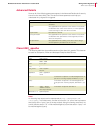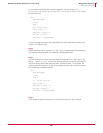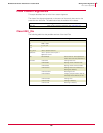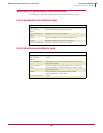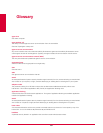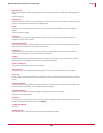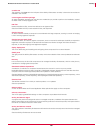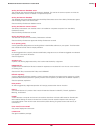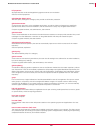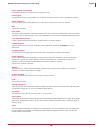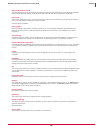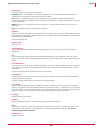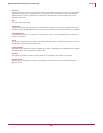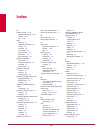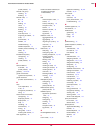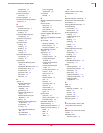
191
McAfee
®
Host Intrusion Prevention 6.1 Product Guide Glossary
full properties
All properties that can be exchanged during agent-to-server communication.
See also minimal properties.
global/McAfee default policy
The base policy settings for a category that provide out-of-the-box protection.
global administrator
A user account with read, write, and delete permissions, as well as rights to all operations; specifically,
operations that affect the entire installation, and are reserved for use by only the global administrator.
Compare to global reviewer, site administrator, site reviewer.
global blacklist
A list of e-mail addresses or domains that the administrator creates as a company-wide standard. Any e-mail
messages from the addresses or domains on the global blacklist will always be treated as spam.
Compare to global whitelist; see also blacklist.
global distributed repository
A distributed software repository that can be automatically kept current with the contents of the master
repository.
See also replicate, replication.
global policy
The default McAfee policy for a category.
global reviewer
A user account with read-only permissions, that can view all settings in the software for an entire installation,
but cannot change any settings.
Compare to global administrator, site administrator, site reviewer.
global updating
A method for deploying product updates as soon as the files are checked into the master repository without
user intervention. Files are immediately replicated to all SuperAgent and global distributed repositories; the
ePolicy Orchestrator server sends a wakeup call to all SuperAgents; SuperAgents send a broadcast wakeup
call to all agents in the same subnet; then all client computers retrieve the updated files from the nearest
repository.
group
In the console tree, a logical collection of entities assembled for ease of management. Groups can contain
other groups or computers, and can be assigned IP address ranges or IP subnet masks to allow sorting
computers by IP address. If you create a group by importing a Windows NT domain, you can automatically
send the agent installation package to all imported computers in the domain.
high-risk application
Under Application Protection Rules, an application that is open to having code injected into its memory space
or dynamic library and thus requiring protection.
host, host computer
See client computer.
host IPS (HIPS)
Host protection rules that monitor and prevent attacks on the operating system and applications of a host
system.
Host Intrusion Prevention (HIP) client
The Host Intrusion Prevention module that is installed on each host system in your network. The client serves
as a protective layer surrounding a computer’s operating system and applications, identifying and preventing
suspected breaches of security and malicious attacks.



